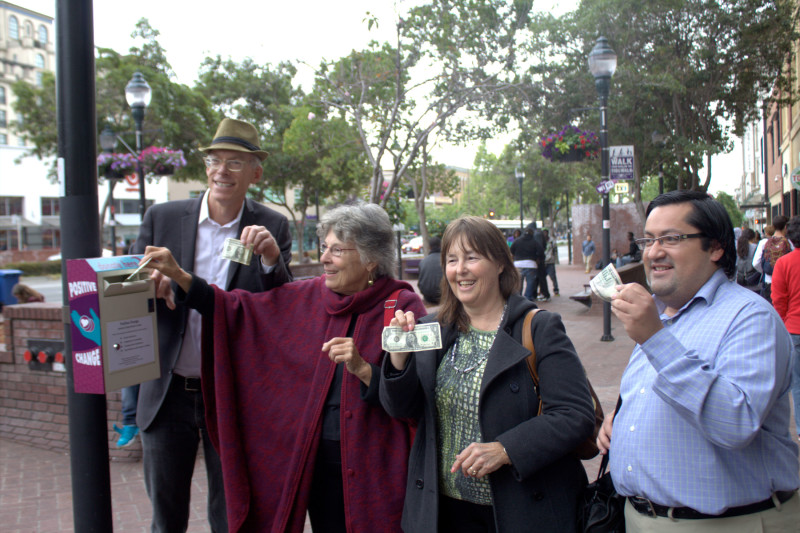Members of the Berkeley City Council, the Downtown Berkeley Association and the Berkeley Food and Housing Project gathered by the downtown BART station last Thursday to launch a donation program for the city’s homeless population.
The Positive Change program will install up to 10 tamper-proof donation boxes around downtown Berkeley in which donors can drop off money to pay for social services geared to help reduce homelessness. Collected by the Downtown Berkeley Association once a week, the donations will go into a bank account from which the Berkeley Food and Housing Project can allocate funds.
The donations will go toward transportation assistance in the form of bus or BART fares; ID card and housing application fees; supplies, such as socks, underwear and toiletries; and the Homeward Bound program, which pays for long-distance bus tickets to reunite with family members in another California city, according to a statement released by the Downtown Berkeley Association.
“These were all things people come to us and ask for,” said Terrie Light, executive director for the Berkeley Food and Housing Project. “When people come for help, we will track the funds from the donations very specifically. There will be a ledger to keep track of these expenses.”
Sponsored by Berkeley City Councilman Jesse Arreguín and Vice Mayor Linda Maio, the motion to implement Positive Change was passed with eight in favor and one abstention — by Max Anderson — at the March 17 council meeting. Arreguín has been working for three years with the Downtown Berkeley Association to implement the program.

